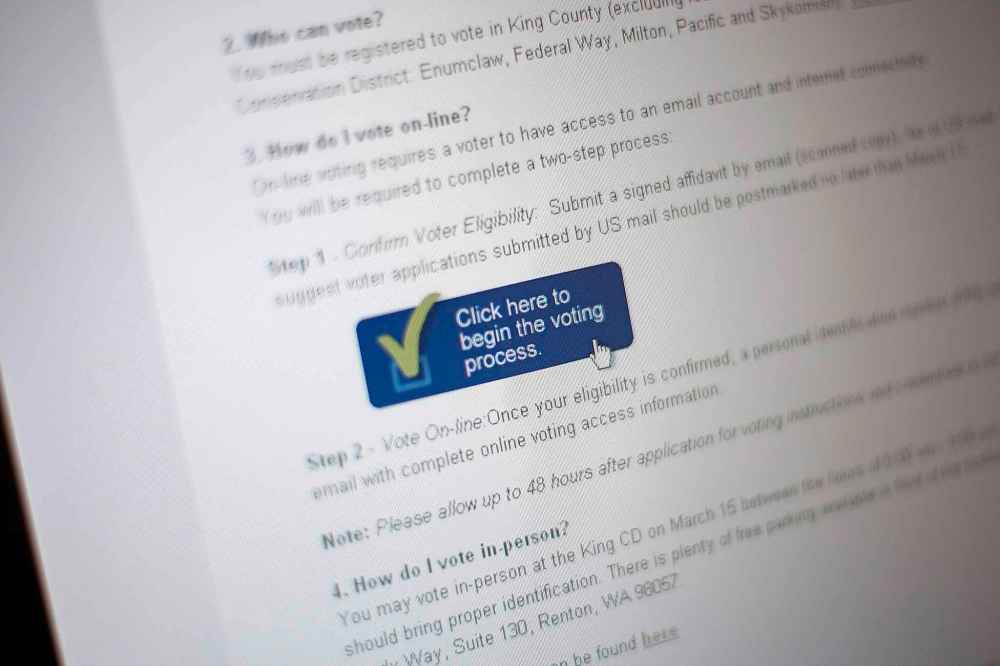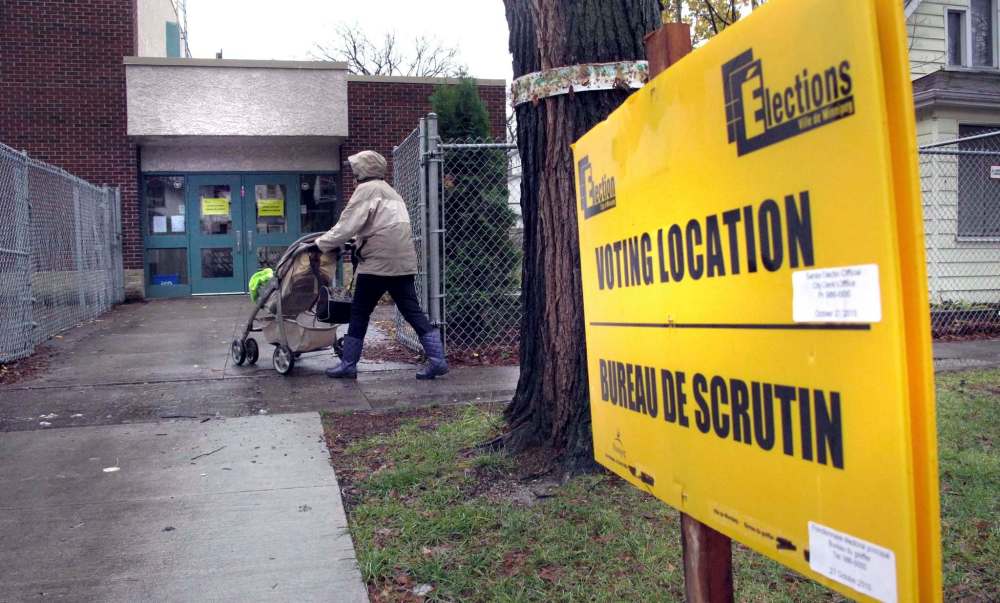Online voting not yet a practical option
Read this article for free:
or
Already have an account? Log in here »
To continue reading, please subscribe:
Monthly Digital Subscription
$0 for the first 4 weeks*
- Enjoy unlimited reading on winnipegfreepress.com
- Read the E-Edition, our digital replica newspaper
- Access News Break, our award-winning app
- Play interactive puzzles
*No charge for 4 weeks then price increases to the regular rate of $19.00 plus GST every four weeks. Offer available to new and qualified returning subscribers only. Cancel any time.
Monthly Digital Subscription
$4.75/week*
- Enjoy unlimited reading on winnipegfreepress.com
- Read the E-Edition, our digital replica newspaper
- Access News Break, our award-winning app
- Play interactive puzzles
*Billed as $19 plus GST every four weeks. Cancel any time.
To continue reading, please subscribe:
Add Free Press access to your Brandon Sun subscription for only an additional
$1 for the first 4 weeks*
*Your next subscription payment will increase by $1.00 and you will be charged $16.99 plus GST for four weeks. After four weeks, your payment will increase to $23.99 plus GST every four weeks.
Read unlimited articles for free today:
or
Already have an account? Log in here »
Hey there, time traveller!
This article was published 23/10/2018 (2607 days ago), so information in it may no longer be current.
On Wednesday, hundreds of thousands of Winnipeggers are eligible to visit voting booths and fulfil their important responsibility. It’s expected at least half of us won’t bother.
Some people will feel their day is already crowded with jobs, school, families, errands and watching the Jets-vs.-Leafs hockey game. Finding the time to visit a polling station might seem less like a democratic privilege and more like an obligation they can ditch.
Some potential voters likely think, “Why can’t I vote online? I can do almost everything else online, including banking, getting groceries, managing my social relationships, and even, as of last week, buying cannabis. Why can’t I vote online?”

That question is being addressed in many jurisdictions concerned with low voter turnout, a scenario expected when Winnipeg’s votes are counted.
The 2014 Winnipeg civic election recorded a turnout of 50.23 per cent, so any less than that on Wednesday would present the distressing reality that most Winnipeggers couldn’t be bothered to vote.
So it seems sensible to make it easier by letting voters cast an e-ballot on their desktop computers or even their smartphones. Why isn’t there an app for that?
When Ontario held its civic elections on Monday, roughly half of the 444 muncipalities allowed some form of electronic voting; in some, e-voting was the only option available. Proponents say it was more convenient for voters, required a small workforce of election workers and allowed larger voting windows, with some municipalites allowing 24-hour voting from Oct. 12 to 22.
In the U.S., more than 20 states allow residents to vote online via email or through a secured web portal, but this method is reserved for only a few, such as disabled voters, or military people serving overseas.
While these tentative experiments in online voting are interesting, it’s too soon for them to be fully embraced by the officials who structure the voting methods for Manitoba’s provincial election on Oct. 5, 2020, or Canada’s federal election on Oct. 21, 2019.
Most experts in network security say we don’t yet have the technology to guarantee the privacy and reliability requirements of an election. They say online voting is potentially open to manipulation by hostile foreign governments, national intelligence agencies or even disaffected, basement-dwelling hackers who have developed their mischievous skills by spending more time on the dark web than on the sunlit streets of Winnipeg.
It’s critical for our votes to be safeguarded. For example, it’s particularly important for government employees, and people who do business with governments, to be sure the government will never know who voted for whom.

Also, as the votes cast in Wednesday’s election are tallied, Winnipeggers need the continued assurance that the final election tallies for specific candidates were not reduced or inflated by cyber-vandals whose hacking know-how exceeds their ethical standards.
The e-voting experiments in Ontario and other jurisdictions should be monitored, but not adopted until technology experts can guarantee our votes remain secure and the election results are free of electronic manipulation.
Until then, Wednesday’s vote requires Winnipeggers to tie on their shoes, instead of turning on their computer, and make their way to their local school or community centre to fulfil this important democratic privilege.
Who knows? As a bonus, at our local polling station we may meet a neighbour, reminding us fondly of when the term “social network” involved nodding hello and chatting face to face.









